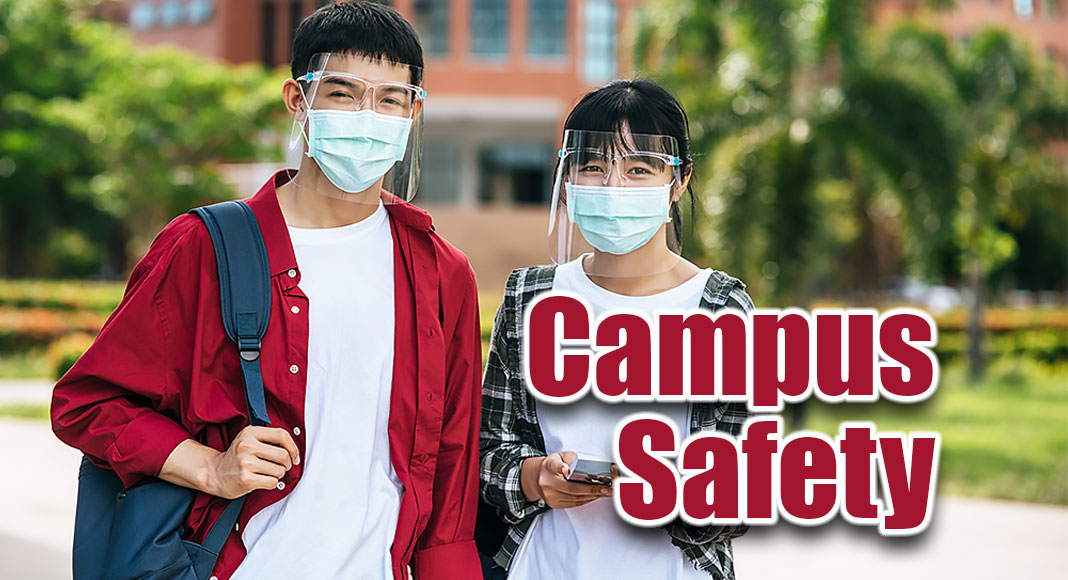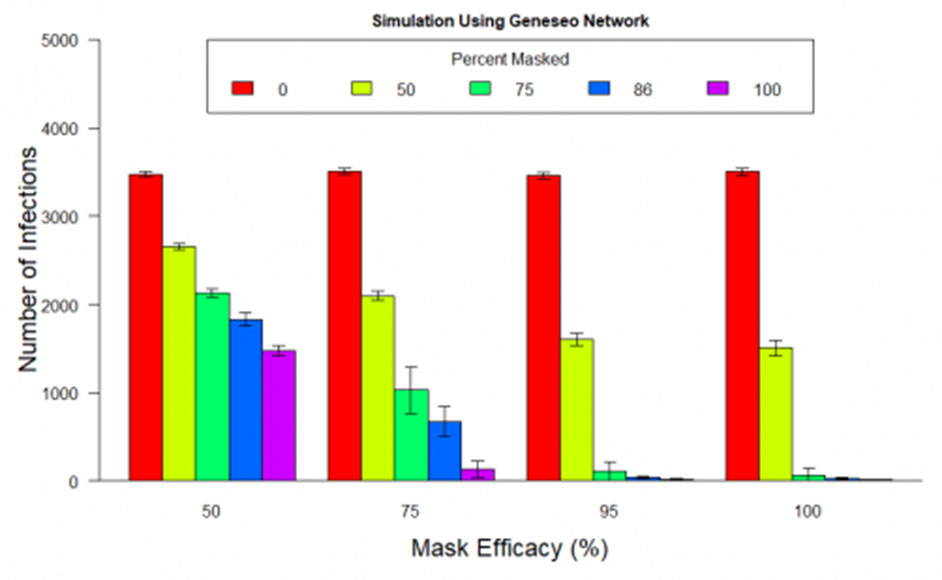
Mega Doctor News
By State University of New York at Geneseo
Newswise — Recently published research by SUNY Geneseo biologist Professor Gregg Hartvigsen reveals the most effective non-pharmaceutical measures that can help reduce the spread of COVID-19 on residential college campuses.
Using enrollment and housing data from Geneseo’s campus, Hartvigsen employed computer modeling to examine the effectiveness of prevention practices and behaviors, including different levels of masking compliance, mask efficacy, testing frequency, isolation of positive cases, contact tracing, and class schedules, among other factors. The model was based on the alpha variant of an R0 of 2.4 (where one infected person is likely to infect 2.4 unprotected people) in an unvaccinated population.
Hartvigsen’s research, published in the peer-reviewed journal PLOS ONE, shows that masking was the most effective non-pharmaceutical way to prevent the spread of COVID-19 on a college campus, followed by frequent testing and isolation of positive cases.
“How many students wear masks is important,” Hartvigsen said, “but I also tested the effectiveness of different masks, from 50 percent effective to those that were 100 percent effective. It turns out that this was slightly important, but nothing compared to students who wore masks vs. no masking.”
According to the research, daily to weekly testing of students is the second greatest measure that a campus can take to prevent the spread of COVID-19. “Testing students less frequently than every other week resulted in significantly more infections,” Hartvigsen pointed out. “Additionally, contact tracing was shown to be important in reducing infections beyond isolating individuals who tested positive.”
Hartvigsen’s work also revealed patterns unique to a college campus. For example, the research shows that students in popular majors were more likely to get COVID-19. And classes with more than about 40 students were also at heightened risk. As a result, students in MWF classes were more likely to test positive compared to those in TTh classes, which tend to be smaller and have students from diverse majors.
Hartvigsen was amused when during peer-review of the research earlier this year, one reviewer criticized it for being “untimely” because masking was no longer necessary post-vaccination. “Actually, the take takeaway message is that masking can be very effective in limiting the spread of COVID-19 on college campuses.”










